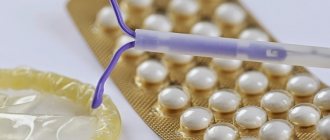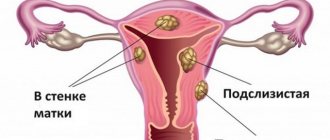When a woman takes contraceptives, this does not mean that she categorically does not want children. Simply, for some reason, she is not ready to give birth now. Many women, even at such moments, worry about whether they will be able to get pregnant after stopping such effective drugs.
In such cases, you should not rely on the advice of friends who use contraceptives, but rather seek help from a real specialist - a gynecologist. He will competently select the necessary form of the drug and explain the features of use and the possibility of getting pregnant after them.
When can pregnancy occur after discontinuing Jess Plus: in the first month or how long after?
The popular drug Jess belongs to the so-called COCs or combined oral contraceptives, which are prescribed to prevent pregnancy. Is it possible to get pregnant after failure of the drug, and when does this happen most often?
Oral contraceptives provide the highest percentage of protection against unplanned pregnancy. But, when it comes time to have small children, many questions arise: when does conception occur, is it possible to get pregnant immediately after withdrawal, and what happens if pregnancy does not come?
Pharmacological properties of Jess
All birth control contraceptives have a similar composition - hormones that prevent the maturation and release of the egg into the fallopian tubes.
Modern COCs are practically safe: if previously doctors recommended taking a break every 3-5 years, now you can stop taking them only to conceive a child. The peculiarity of this contraceptive is a special improved composition, which contains not only hormones that counteract ovulation (ethinyl estradiol + drospirenone), but also a synthetic analogue of folic acid - calcium levomefolate. The latter component is involved in the process of cell division and counteracts the formation of neural tube defects in the fetus in the event of fertilization.
Pregnancy after taking birth control pills
Since the main task of contraceptives is to prevent conception, many women think that such drugs are not able to facilitate the process of fertilization. A correctly selected drug does not harm the function of the ovaries; on the contrary, during the “vacation” they gain strength and after stopping the COC they begin to work much more intensely. When planning a pregnancy and an unstable menstrual cycle, gynecologists recommend taking pills for 3 months. After discontinuation of such drugs, conception occurs quickly without complications.
Immediately in the first month
The drug is prescribed at the planning stage before conception. Due to the fact that the ovaries rest for 2-3 months, when the drug is discontinued, the opposite effect occurs in the form of intensive production of follicles (rebound effect), fertilization occurs faster, most often in the first cycle.
How to get pregnant after withdrawal
To conceive a healthy child while discontinuing the drug, you do not need to take special measures; it is enough to follow the recommendations of the gynecologist. The contraceptive is taken at the same time of day, every day, regardless of food intake. You should not skip pills; this can disrupt hormonal levels and delay conception indefinitely.
How long can it take to get pregnant after taking Jess?
The time it takes for fertilization to occur depends on many factors, including both the individual characteristics of the body and the physiological characteristics of the reproductive system. Most often, fertilization will require no more than three natural menstrual cycles after discontinuation of hormonal contraceptives.
Restoration of reproductive functions
The rehabilitation period after finishing taking Jess and similar drugs usually takes 3 months. When the intake of drospirenone and ethinyl estradiol into the body stops, the gonadotropic function of the pituitary gland immediately resumes. Despite the length of time that the ovaries are dormant, the likelihood of conception during this period is very high. Gynecologists often use this phenomenon in the treatment of infertility or difficulties with fertilization. However, in the absence of special indications, experts recommend refraining from planning pregnancy during the entire recovery period, which includes the following stages:
- Normalization of all phases of the menstrual cycle, resumption of ovulation.
- Increasing the endometrial layer of the required thickness in order to compensate for the atrophy of the mucous membrane of the uterine cavity that developed while taking COCs.
- Restoration of the natural microflora of the vagina and the composition of the cervical secretion.
During the entire rehabilitation period, women planning a pregnancy are recommended to visit a gynecologist and other specialists, take all necessary tests, and also take a course of folic acid. At this time, it is necessary to protect yourself with barrier contraceptives.
As a rule, in the absence of health problems, full ovulation occurs 2-4 months after o and “Jess Plus”. The same time is required for the restoration of menstruation (the first two or three cycles may be irregular). Starting from this period, you can plan a pregnancy.
Jess plus: is it possible to get pregnant after taking birth control pills?
Gynecologists prescribe the drug in cases where a woman has unstable or painful menstruation, or an insufficient amount of female sex hormones, which contribute to the maturation of the female gonads. In addition to contraception, there are the following indications for use:
- amenorrhea of varying degrees;
- lack of ovulation;
- age 45+;
- beginning menopause;
- acne;
- chest pain associated with menstruation;
- fertilization planning.
Taking Jess does not affect a woman's subsequent fertility. If before the prescription of the drug there was infertility due to an unstable cycle, irregular ovulation, then you can “play” on the rebound effect and conceive the long-awaited baby.
Mode of application
One package of contraceptive must be used for 28 days, one unit of the drug per day. The tablet is swallowed without chewing and washed down with clean boiled water at the same time, strictly observing identical time intervals. Eating food or liquids does not affect the absorption of active ingredients.
You should start with the first hormonal tablet and drink all units of the drug strictly in order, despite the same concentration of drospirenone and ethinyl estradiol. This avoids problems and confusion if an appointment is missed. Lastly, take auxiliary tablets (vitaminized or placebo). A new pack must be started the day after the previous one is completed, without interruption.
It is recommended to drink “Jess” and “Jess Plus” from the first day of the menstrual cycle. A delay up to the fifth day inclusive is allowed, but in this case it is necessary to use additional barrier contraceptives during the first week.
If you miss one or more active tablets, you should drink the missed units of the drug at the first opportunity, and use the rest of the pack strictly according to the instructions. If the delay is less than 24 hours, the protective effect of COCs is not reduced, otherwise it is necessary to use additional contraceptives for a week. Skipping placebos does not affect the patient's blood levels of hormones, so taking them can be ignored.
If pregnancy does not occur after discontinuation
You should not hope that conception will occur on the first day of withdrawal. Fertilization requires a mature egg, which is released approximately 16-18 days after menstruation. It is necessary to count the beginning of the cycle from the first day of menstruation.
To create a rebound effect (increased ovarian function), you must take the pills for at least three months in a row, without missing a pill. If conception does not occur, there is no need to panic. Sometimes a gynecologist recommends using a 4/2 regimen: 4 months of taking Jess and 2 months of rest. This regimen will allow the ovaries to produce the required number of follicles.
How does he work
Modern girls decide for themselves when to have children. Fortunately, the pharmaceutical industry offers a variety of contraceptives, thanks to which young families, and older people too, can control the process of childbearing.
Among the medications to prevent pregnancy, one can highlight the “Jess” birth control pills. This is a new generation contraceptive with an improved formula. The drug contains drospirenone, which is an alternative to the natural hormone progesterone. It is drospirenone that helps relieve all symptoms of PMS. While taking contraceptives, which were produced by pharmacologists earlier, swelling and excess weight were inevitable. Jess does not have these unpleasant side effects.
Manufacturers, and along with them many doctors, claim that taking these pills, due to their minimal estrogen content, is safe for the female body. However, the COC should be chosen by a physician. Only an obstetrician-gynecologist, taking into account your age, illness and hormone levels, can choose a contraceptive that is suitable for you.
If you take Jess tablets correctly, the chance of getting pregnant is minimal. According to statistics, less than 1% per year.
You should start taking pills from the first day of menstruation. If treatment is started on days 2-5 of the cycle, then in the week following menstruation it is necessary to use additional barrier methods of contraception. The tablets are taken daily at the same time with a slight deviation (ideally up to an hour). It is undesirable to use Jess together with other medications, as some of them may reduce the contraceptive effect. In any case, if you need such drugs, it is better to consult your doctor before taking them. It is strictly forbidden to take breaks if the package has run out, so you should take care of a supply of Jess birth control pills in your home medicine cabinet in advance.
Does the drug affect the fetus?
It happens that a woman takes birth control pills while she is already pregnant. Monthly bleeding does not come, or scanty discharge is “smeared”. A contraindication for taking COCs is suspected pregnancy. Therefore, if you suspect fertilization (especially if you missed a pill), you need to contact a gynecologist. As a rule, stopping Jess does not provoke a miscarriage, but in certain situations, utrozhestan may be prescribed to maintain pregnancy.
Pregnancy while taking birth control pills
Many patients are concerned about the question of whether it is possible to get pregnant while taking Jess. The risk of conception while using hormonal contraceptives is very small, but still exists. Most often this happens in the following cases:
- incorrectly selected drug, dosage or violation of the rules of administration;
- skipping a pill, especially for more than 24 hours;
- diarrhea or vomiting within 3-4 hours after using COCs;
- simultaneous use of alcohol, other medications, herbs or dietary supplements.
It should be remembered that while using COCs, the sensitivity of rapid pregnancy tests may decrease, so if you have any suspicions, you should consult a doctor. If the fact of fertilization is confirmed, it is necessary to immediately stop taking birth control pills, although at present there is no reliable evidence of their negative effect on the child.
Risk factors for birth control pills
Jess is often prescribed to young women; one of the conditions for taking it is to give up nicotine. Smoking increases the risk of developing thrombosis, cardiovascular diseases, and angina.
Contraindicated for migraines, past and present thrombosis, varicose veins, and breast cancer. Long-term use does not significantly increase the risk of developing breast cancer, but reduces the risk of ovarian and cervical cancer.
How is pregnancy progressing after Jess?
Pregnancy that occurs after a contraceptive is no different from other pregnancies. Moreover, there is a decrease in the manifestation of toxicosis in women who took this drug for at least three months before conception. With the improved composition of the contraceptive, the likelihood of bearing a healthy child increases, since the drug contains vitamin B9 (folic acid).
As medical practice in gynecology and obstetrics shows, discontinuation of Jess helps to increase the production of eggs, which increases the likelihood of pregnancy immediately in the first menstrual cycle after discontinuation of the drug. The main condition is compliance with the gynecologist’s recommendations.
Planning a pregnancy
When a couple becomes ready for pregnancy, it is necessary to properly discontinue Jess Plus. It depends on the intended use. If it was prescribed for the treatment of menstrual irregularities with use for 4 months, then you just need to abandon it and start conceiving.
When the drug is used only as a contraceptive, and for quite a long time, then after discontinuation you need to refrain from conceiving for another 3 months. During this time, the menstrual cycle and the productivity of female hormones should be restored.
Jess plus: how long to expect pregnancy after stopping the drug?
Many women think that the purpose of contraceptives is to prevent unwanted pregnancy. Modern contraceptive drugs have such a unique composition that their use is widely used by gynecologists even when planning pregnancy. Many childless couples have become happy parents with the help of Jess Plus. And this is not all the advantages of the drug: after a course of taking the pills, the appearance of women underwent significant changes: acne disappeared, excess weight decreased.
Contraindications
Contraceptives "Jess" and "Jess Plus" are contraindicated in the following cases:
- intolerance to the active and auxiliary substances of the drug;
- pregnancy and breastfeeding;
- predisposition to the formation of blood clots;
- endocrine disorders, diabetes mellitus;
- tumors of any etiology;
- severe pathologies of the urinary system, liver, gastrointestinal tract;
- high blood pressure;
- uterine bleeding of unknown nature.
It's all about Jess Plus
Currently, more and more girls are choosing to use combined contraceptives; their regular use can reliably prevent unwanted pregnancy. After stopping Jess Plus, women worry about problems with conception, because they have been taking pills for so long, the main properties of which were precisely to prevent pregnancy. To dispel all concerns, you need to carefully read the composition of the drug:
- ethinyl estradiol is an estrogenic sex hormone that regulates vital processes in humans;
- Drospirenone is a synthetic hormone for oral contraception.
Important: hormones in contraceptive medications are selected by a gynecologist individually for each woman, after undergoing biochemical tests.
In addition to hormonal drugs, Jess Plus contains micronized calcium levomefolate, the usefulness of which for a woman can hardly be overestimated. By alternating the intake of ethinyl estradiol and drospirenone with calcium levomefolate, a woman combines the possibility of guaranteed absence of pregnancy with the treatment of anemia and saturating the body with the necessary vitamin.
We recommend that you find out how the computer affects a pregnant woman.
Is it possible to take Biseptol during pregnancy? You can read here.
Operating principle of Jess Plus: pregnancy prevention
Regardless of how long a woman has been taking Jess Plus, pregnancy will not take long, because everything in the body is ready for conception to occur. It was the contraceptive that took care of creating favorable conditions. After taking Jess Plus, the following positive changes occur:
- the volume of blood lost during menstruation is reduced;
- weight loss occurs, swelling is absent;
- pain in the chest area disappears or decreases (fibrocystic mastopathy);
- the volume of secretion produced by the sebaceous glands decreases - acne disappears;
- the functioning of the thyroid gland is normalized.
Ethinyl estradiol is a synthetic hormone belonging to the group of estrogens. Estrogens are produced in a woman’s body by the adrenal glands and ovaries, influence the likelihood of conception, and under their influence the formation of sexual characteristics occurs. In addition, the substance regulates lipid metabolism and improves glucose metabolism.
Important: the drug should not be used to treat acne or as a means for weight loss. When prescribing Jess Plus, the doctor takes into account the possibility of adjusting the appearance, but only in conjunction with its main purpose.
Drospirenone has pronounced antimineralkorticoid properties. Taking estrogen is accompanied by water retention in the tissues, and drosperinone neutralizes this process and reduces the likelihood of edema of various origins. It also reduces the amount of pain that women suffer from heavy menstruation, and its antiandrogenic activity improves a woman’s appearance - the greasiness of the skin and hair is reduced. The contraceptive effect of drospirenone is associated with its ability to increase the viscosity of mucus in the cervical canal, preventing sperm from fertilizing the egg.
Jess Plus when planning pregnancy: recommendations from experts
The question of the possible likelihood of getting pregnant after Jess Plus is not even considered by gynecologists, because they advise many childless women to use the drug specifically for the treatment of infertility. Jess Plus is prescribed for irregular and painful periods and problems with ovulation. Under the influence of the drug, the cycle is normalized, and the likelihood of conception increases significantly.
Important: even if a woman takes Jess Plus for the treatment of infertility, she must strictly follow the doctor’s recommendations and take the tablets in accordance with the accompanying instructions.
An important reason is the presence of calcium levomefolate in the drug for the purpose of Jess Plus. Pregnancy after taking it occurs much faster precisely due to the presence of this synthetic derivative of folic acid. It eliminates the causes of anemia in a woman’s body, relieves her of chronic fatigue, and improves appetite. The expectant mother approaches pregnancy well prepared, without the presence of diseases of the female reproductive system.
Is it possible to become pregnant while taking Jess Plus?
When taking any hormonal contraceptives, women often wonder about the likelihood of pregnancy with this method of contraception. Is it possible to get pregnant while taking Jess Plus? The Pearl index can answer this question, which is used to determine the possibility of pregnancy while taking contraceptives. Having examined one hundred women, experts identify cases of unplanned conception.
Important: when selecting oral contraceptives, in consultation with a specialist, you need to clarify with him what the probability of conception is when using pills according to the Pearl index and choose the one whose indications are the lowest.
When used correctly, Jess plus the Pearl index was less than one. The occurrence of errors with this method of calculating the reliability of contraceptives is completely excluded. Specialists conduct interviews about the use of other medications by the women being examined, and only after their absence will they include her result in statistical calculations.
Find out if Gedelix is allowed for pregnant women.
We'll tell you why hair appears on the belly of pregnant women here.
Are glycerin suppositories safe for pregnant women? Read here: //moeditya.com/preparations/mazi/glicerinivie-svechi
How long to wait for pregnancy after stopping Jess Plus?
After a woman has decided to give birth to a child, she must stop taking Jess Plus. Pregnancy after discontinuation of the drug occurs quite quickly, depending on the health of the expectant mother and the readiness of her body to bear a child. The excellent health of both parents can guarantee conception within two months after stopping taking the drug.
If for some reason pregnancy does not occur, you need to visit a gynecologist. After examining the future parents and studying the results of biochemical tests, the doctor decides on further actions. You may have to wait a few more months if the doctor does not find any significant problems.
Jess plus: pregnancy has finally occurred
Women begin to take the drug with a light heart, because they have heard only positive reviews about Jess plus. And the pregnancy did occur... If a woman decides to keep the child, she may be tormented by doubts about his health throughout the entire 9 months. Often she may not even trust her gynecologist; she believes that he is not telling something, because the pregnancy occurred while taking hormonal drugs.
The most unpleasant thing is that the expectant mother begins to look for information on the Internet, where many sites tell various horror stories about congenital deformities. Experts unanimously say that pathological pregnancy while taking Jess Plus is impossible. No such cases have been described in the medical literature, and in the extensive practice of gynecologists, the birth of children with abnormalities has not been observed.
Contraindications and side effects when taking Jess Plus
To prevent a woman from developing health problems over time, she should not decide to take the drug without consulting a specialist - some chronic diseases impose a categorical ban on the use of pills. Here are just a few of them:
- thrombosis of various etiologies;
- diabetes;
- migraine;
- arterial hypertension;
- cerebrovascular diseases;
- liver diseases;
- Breastfeeding and pregnancy.
After taking Jess Plus, some women were bothered by scanty bleeding for 2-3 months. This short-term side effect disappeared after regular use.
KOC: pros and cons
In most cases, gynecologists prescribe "Jess" not only to prevent unwanted pregnancy, but also to solve women's problems, such as severe PMS or irregular menstruation.
- “Jess” puts hormonal levels in order, restoring the menstrual cycle and making it regular.
- Prevents inflammatory diseases of the female genital area.
- Prevents the occurrence of tumors and the development of uterine or ovarian cancer.
- Thanks to its special composition, it helps fight acne, improves the condition of skin and hair, and also reduces the possibility of developing osteoporosis.
However, oral contraception has many opponents, including respected doctors. They believe that any interference in natural processes can negatively affect a woman’s health in the future.
Opponents of COCs (oral contraceptives) argue that their long-term use has a bad effect on a woman’s fertility, since the pills create a “false” menstrual cycle. And when a woman decides to have a child, the ovaries cannot “remember” how to work correctly.
There is also an opinion that when taking COCs the risk of thrombosis increases. And in menopause there is a risk of breast cancer. If the pills are chosen incorrectly, this can lead to bleeding, hormonal imbalances, skin problems, headaches, and depression. Libido often decreases while taking COCs.
Whom to believe is up to you and your doctor to decide. Do not forget also that there are strict contraindications for taking Jess birth control pills:
- Diabetes.
- Migraine.
- Thrombosis.
- Diseases of the liver and cerebral vessels.
- Pregnancy or breastfeeding.








